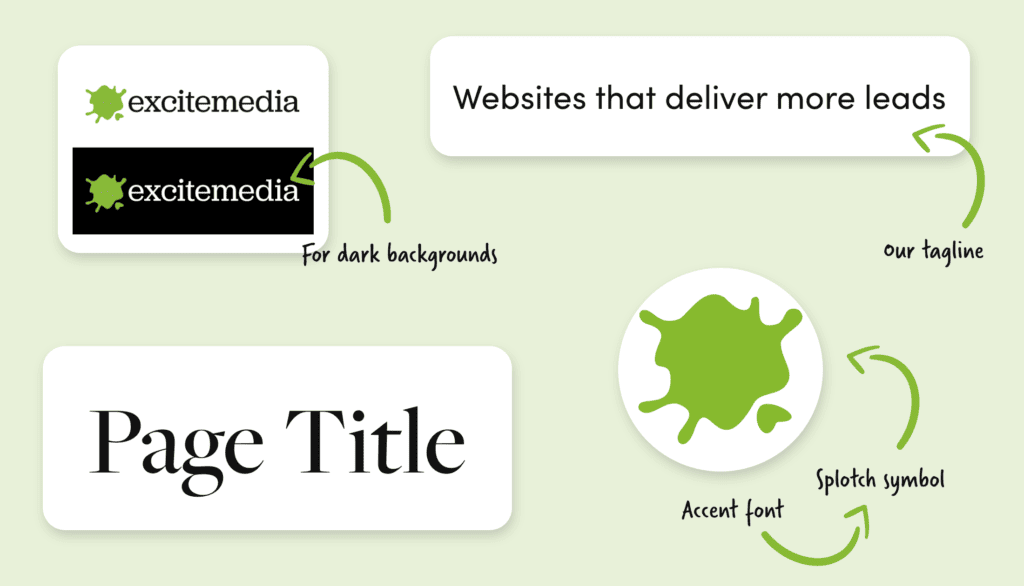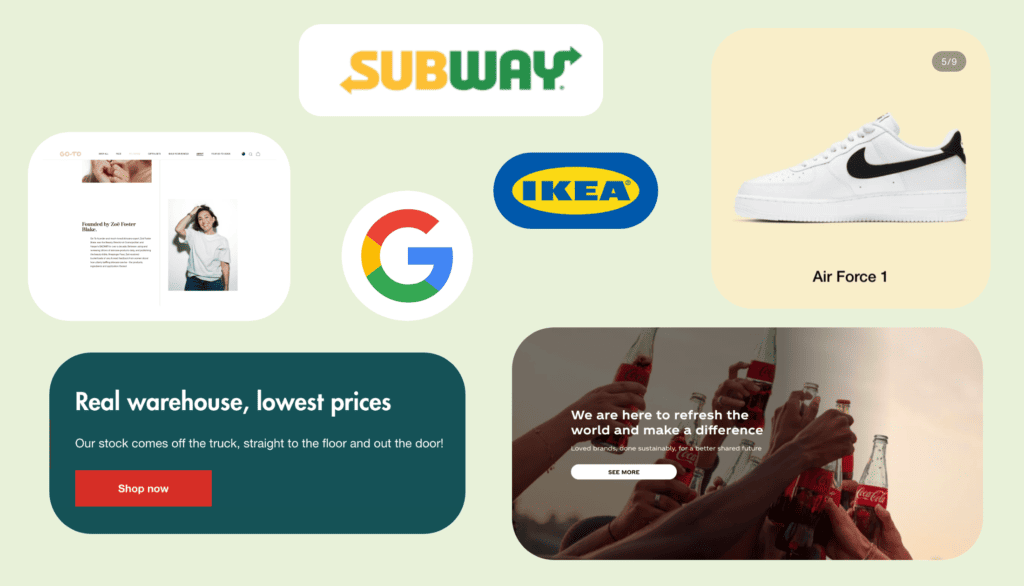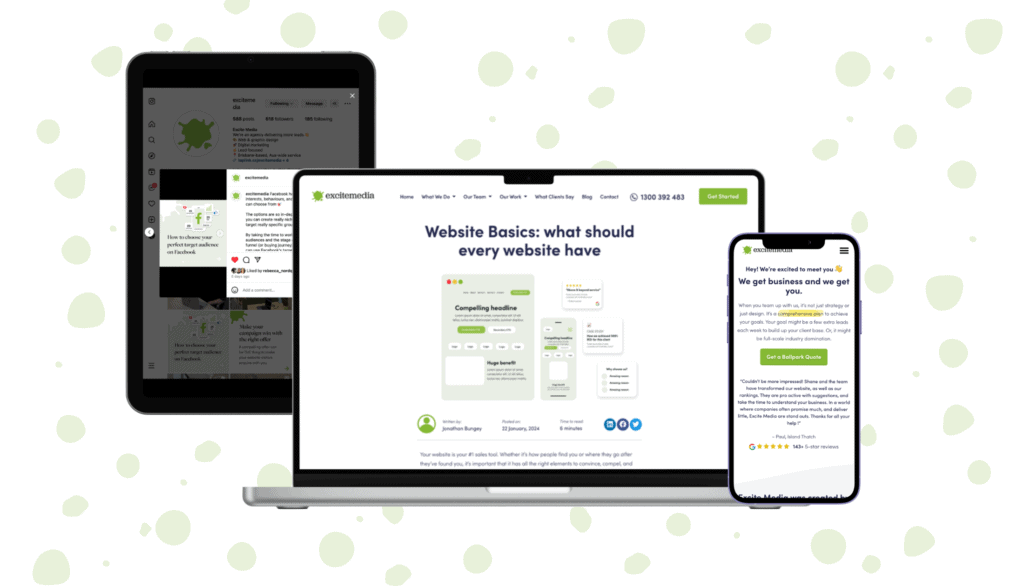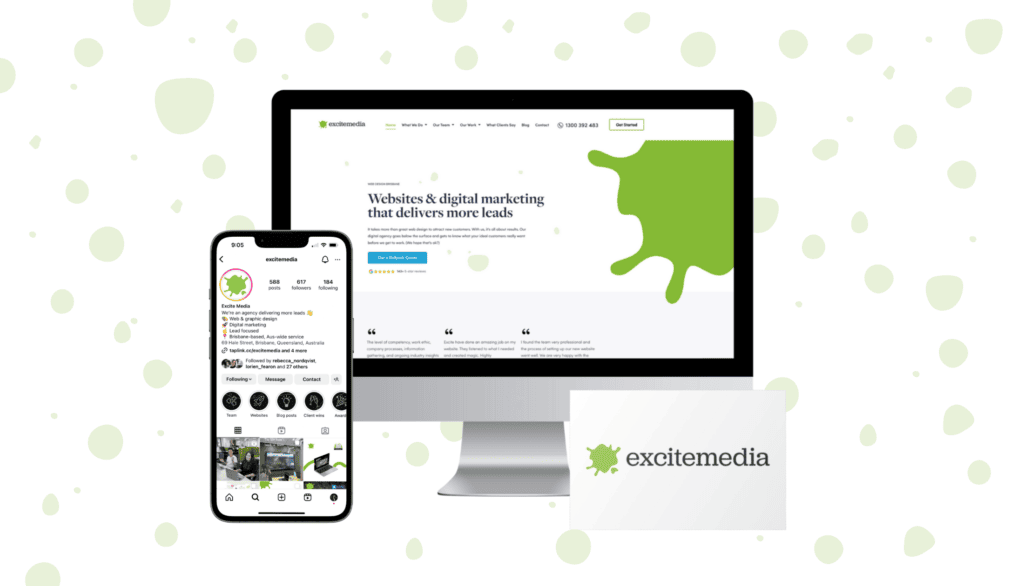We're taking a look at what creates a brand, why it matters, and how you can create a successful brand.
Table of Contents
ToggleThe TL;DR (too long, didn't read) 👇
Good branding matters.
- Your brand is made up of your visual identity, brand voice, values, and how you position your business.
- It's important because your brand is how you get recognised, build loyalty and trust, and stand out from your competitors.
- A good brand tells a good story, makes the benefit of choosing you clear, is distinct, and is one that your ideal customers resonate with.
- Your branding is key to the success of your digital marketing campaign. It informs how you communicate, gets your audience to engage with you, makes them trust what you're saying, and ideally, makes them loyal to you.

What even is branding? 🎨
Branding is your business’ personality.
It’s your visual identity — as in your logo, colours, and fonts.
It’s your image — how you want to be perceived and the messages you communicate to your audience.
It’s your brand voice — what your personality is and how you talk to your customers.
It’s your brand values — what your company culture is like and how you engage with your audience.
And it’s your positioning — where you sit in the market and within your industry in terms of accessibility, price point, quality, and more.
What's the difference between branding, marketing & advertising? 🔎
The components of your brand
When we talk about branding, it can all feel really fluffy. It’s not, though.
Branding, when done right, is really strategic. It’s about understanding your ideal customer, who they are, and what they identify with, and then serving up a brand that aligns with them.
Your brand needs to appeal to your audience and feel accessible to them. There’s a reason luxury brands look like luxury brands.
So, what exactly makes up a brand?
Visual identity
Your visual identity is exactly that — the elements of your brand that make up what it looks like.
So, your visual identity includes these elements:
- Logo
- Colours
- Tagline
- Typography & fonts
- Imagery
- Layouts & templates
- Packaging
Brand voice 🎤
Your brand voice is the personality, emotions, and general vibe that comes through your written communications. So, in your website copy, your social media captions, and the emails you send your audience and clients.
Your brand voice includes these aspects:
- The tone — is it friendly, authoritative, informative, fun?
- Language — how complex is the language you use? Is it formal? Conversational, maybe?
- Purpose — are you there to educate? Entertain? Persuade?
Brand values
Your brand values aren’t just words to pop on your ‘About Us’ page.
Especially in the context of your branding, these should inform how you market and advertise your brand, and how you communicate with your audience.
People are now, more than ever, trying to align with brands that share the same values as them.
So, communicating your brand’s values through your messaging and in how you communicate can help your audience align themselves with you.
Brand positioning 🏆
Your brand positioning informs the rest of your branding elements. This is about where you sit in the market and in your industry in terms of quality, trust, service, consistency, and more.
When you think about these kinds of qualities, it’s natural to say, “Well, we want to be the best at everything.”
But the fact is, you can’t be the cheapest product on the market while offering the highest quality, and a second-to-none customer experience.
And consumers know that.
This is where you need to look at your products or services and really understand what your Unique Selling Proposition (USP) is.
It’s going to inform every other aspect of your branding

Branding is really important for your business. Here's why 👇
So, you get all the different elements that create your brand now. And you get how that plays into your marketing. But why does it matter to your business?
Strong branding helps with recognition 👋
A well-defined brand boosts customer loyalty & trust 🤝
It sets you apart from your competitors 🚶♀️
A good brand created with the right strategy can help you stand out from your competitors.
This is great for the obvious things like brand recognition and sales, but it can even be a factor in helping you recruit better talent.
A unique brand that your audience identifies and engages with is a game-changer for your business.

So, what makes a successful brand? 📈
We’ve talked a lot so far about what branding is and why it matters. So, what makes a brand successful? Well, it’s all of the elements of a brand coming together cohesively in a way that resonates with your target audience.
Here’s what makes a successful brand.
It tells a good story 📕
Your brand story, or more specifically, your ‘why’ for being in business, can help you connect and engage with your audience.
Humans love stories and sharing yours is a great way to connect with your audience.
Speaking of, have you ever read our story?
The benefit of choosing you is clear
We touched on your Unique Selling Proposition (USP) before. Your branding should make the benefit of choosing you clear. Whether it’s quality, value for money, fun, or your care for your customers.
For decades, Bunnings repped the slogan, “Lowest prices are just the beginning.”
They pivoted back in 2020, saying that the rise of online shopping had made that… Well, slightly less true.
Now, they say, “Real warehouse, lowest prices.”
It’s a nod to their original tagline and it’s an updated approach to their USP.
The visual elements are distinct & aligned
You should have a memorable logo with unique colours. Distinct elements can help you stand out from your competitors.
Businesses that go against the grain (even slightly) can really reap the benefits when it comes to their brand.
A massive Aussie brand, Go-To Skincare launched a peach-coloured line at a time when the rest of the market were sporting different shades of pink and they shot to popularity.
Cadbury’s distinct purple stands out in a sea of yellow and red in the confectionary aisle.
It resonates with your target audience 🥰

Your brand is your digital marketing strategy's best friend. Here's why 🤝
Digital marketing strategies call for really great, solid brands. The stronger and clearer the brand, the better the marketing strategy.
Here’s why the two are so important together.
It directly informs you communicate (and therefore, convert)
Your brand, in particular, your brand voice, is how you communicate. A good brand voice that is clear on its USP and its audience is set up to convert your audience into customers.
A good brand voice creates consistency across all of your different channels, making your communication clear, schmick, and conversion-worthy.
It boosts customer engagement 💍
A good brand will evoke an emotional response that encourages people to engage with you. Better engagement makes for better results in your digital marketing.
And importantly, an engaged audience is one that’s more likely to buy from you — even if it’s a little further down the line.
It boosts trust & credibility 🚀
It makes for loyal customers 🐶
Let's have a chat about your brand? 🤝
Chat with our branding specialists and get an understanding of where your brand sits in your market.
We love working with business owners to create strong brands that boost your digital marketing.




